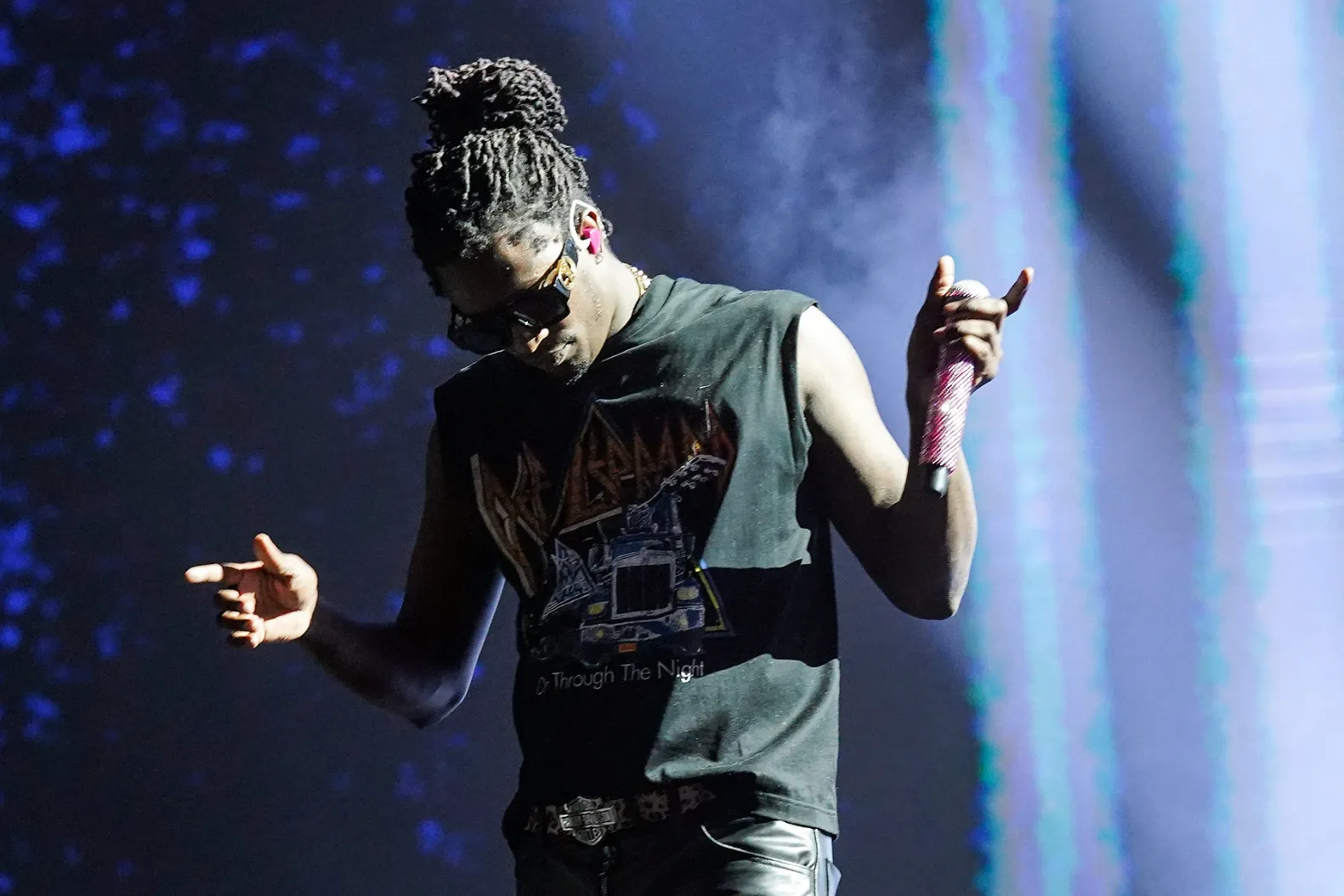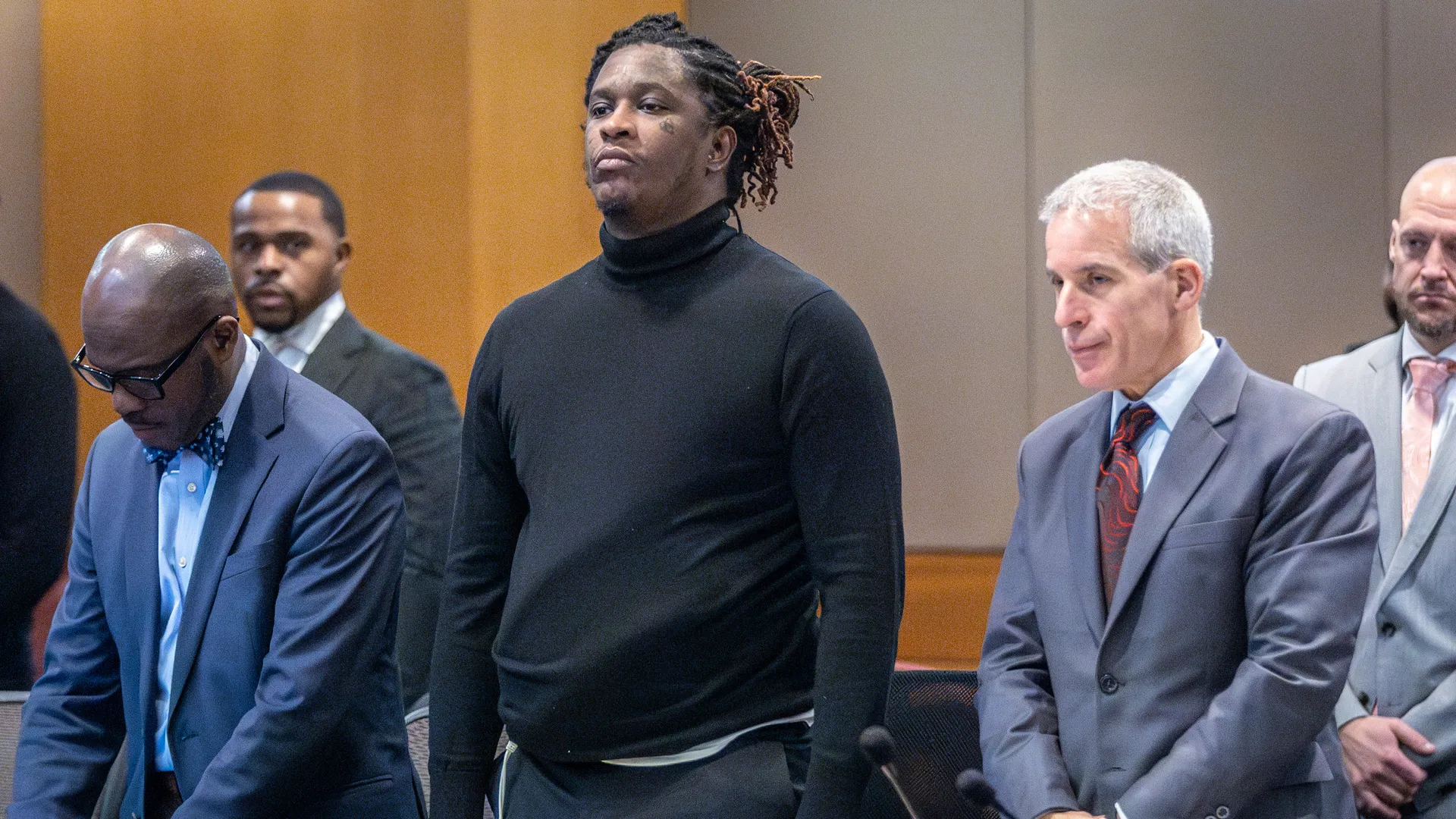In a high-profile case that’s sparked widespread public interest, the influential rapper Young Thug, whose real name is Jeffrey Williams, has been released from jail following a guilty plea on serious gang-related charges. Known for his distinct style and groundbreaking approach to music, Young Thug has become a defining figure in modern hip-hop. However, his recent legal troubles have taken center stage, raising discussions on gang-related charges, the complexities of the RICO Act, and the broader implications for the music industry and society. In this article, we delve into the details of Young Thug’s case, his connection to the RICO charges, and what this legal battle could mean for his future and for the culture he has helped shape. Follow us here at Diablo Immortal Confirms World of Warcraft Collaboration.
Young Thug
Born in Atlanta, Georgia, Young Thug first emerged on the music scene in the early 2010s, quickly gaining a reputation for his unconventional fashion sense, unique voice, and lyrical dexterity. His influence has been widespread, touching every corner of hip-hop with tracks that are not only chart-toppers but cultural anthems. As a Grammy-winning artist, he has collaborated with several of the biggest names in music and has inspired countless upcoming artists. His rise to fame and sustained popularity have established him as one of the leading figures in rap. However, his arrest and subsequent plea on gang-related charges have cast a shadow on his legacy, shifting public attention from his musical accomplishments to his legal issues.

Related: Los Angeles D.A. Supports Menendez Brother’s Request for Clemency
Related: Tiffany Haddish Recalls Painful Ballet Experience
Young Thug Case
Young Thug’s case has unfolded over several months, keeping fans and legal experts on edge as they watched one of hip-hop’s brightest stars face potentially life-altering consequences. He was arrested in May 2022, along with other members of his label and collective, YSL (Young Stoner Life). The charges were largely tied to allegations of gang-related activities, with prosecutors arguing that YSL was functioning as a criminal street gang. Young Thug's case became even more complicated as the authorities used the RICO Act (Racketeer Influenced and Corrupt Organizations Act) to charge him and several others in the group.

His release, achieved after a guilty plea, has been a subject of significant debate. The decision to plead guilty was likely influenced by the severity of the RICO charges, which carry heavy penalties. While Young Thug’s legal team worked tirelessly to navigate these complex charges, the case has highlighted the difficulties public figures often face when caught in legal battles that are magnified by their fame and influence.
What RICO Means
The RICO Act, short for the Racketeer Influenced and Corrupt Organizations Act, was established in 1970 to combat organized crime. It was initially used to target traditional organized crime syndicates, such as the Mafia, by enabling prosecutors to pursue leaders of criminal organizations even if they did not directly commit crimes. In recent years, however, RICO charges have been applied to cases involving gang-related activities and alleged criminal enterprises.
In Young Thug’s case, the use of RICO charges has raised questions and fueled controversy. Critics argue that applying RICO to groups like YSL is an overreach, as it requires prosecutors to prove not only individual crimes but also a larger criminal conspiracy. Supporters of the approach, on the other hand, contend that RICO is a powerful tool for dismantling criminal networks that threaten public safety. For Young Thug, facing RICO charges meant dealing with a legal framework that allowed the prosecution to use his lyrics, social media posts, and affiliations with other individuals as evidence.
Judge Whitaker
Judge Ural Glanville presided over Young Thug’s case, becoming a notable figure in the media as the proceedings gained public attention. Judge Glanville’s rulings and comments provided insight into the complexities of the case, particularly concerning the RICO charges and the debate over whether song lyrics could be used as evidence of gang affiliation. While the defense argued that using Young Thug’s lyrics in court was an infringement on his First Amendment rights, the judge permitted their inclusion, sparking a heated discussion over freedom of expression and the boundaries between art and criminal evidence.
Throughout the case, Judge Glanville maintained a strict stance, underscoring the severity of gang-related crimes and the importance of addressing them. His decisions have fueled ongoing conversations about the legal treatment of public figures accused of serious crimes and whether societal biases play a role in determining outcomes. Judge Glanville’s involvement in the case has also opened a larger discussion about the power dynamics in the courtroom, particularly when it comes to high-profile cases that attract significant media coverage.
Young Thug Charges
Young Thug’s charges primarily stemmed from allegations that he was involved in criminal activities linked to YSL, which prosecutors claimed operated as a gang rather than merely a record label. The charges included conspiracy to violate the RICO Act, murder, and armed robbery. His legal team sought to discredit these claims, arguing that YSL was a legitimate music label with no direct involvement in illegal activities.
One of the most controversial aspects of Young Thug’s charges was the prosecution’s use of his music lyrics and social media posts as evidence to suggest a connection between his public persona and alleged criminal behavior. This tactic has been debated among legal experts, with some arguing that it unfairly targets hip-hop artists by misinterpreting the genre’s use of storytelling and bravado. Although he eventually accepted a guilty plea, the charges against Young Thug have left an indelible mark on his career and reputation.